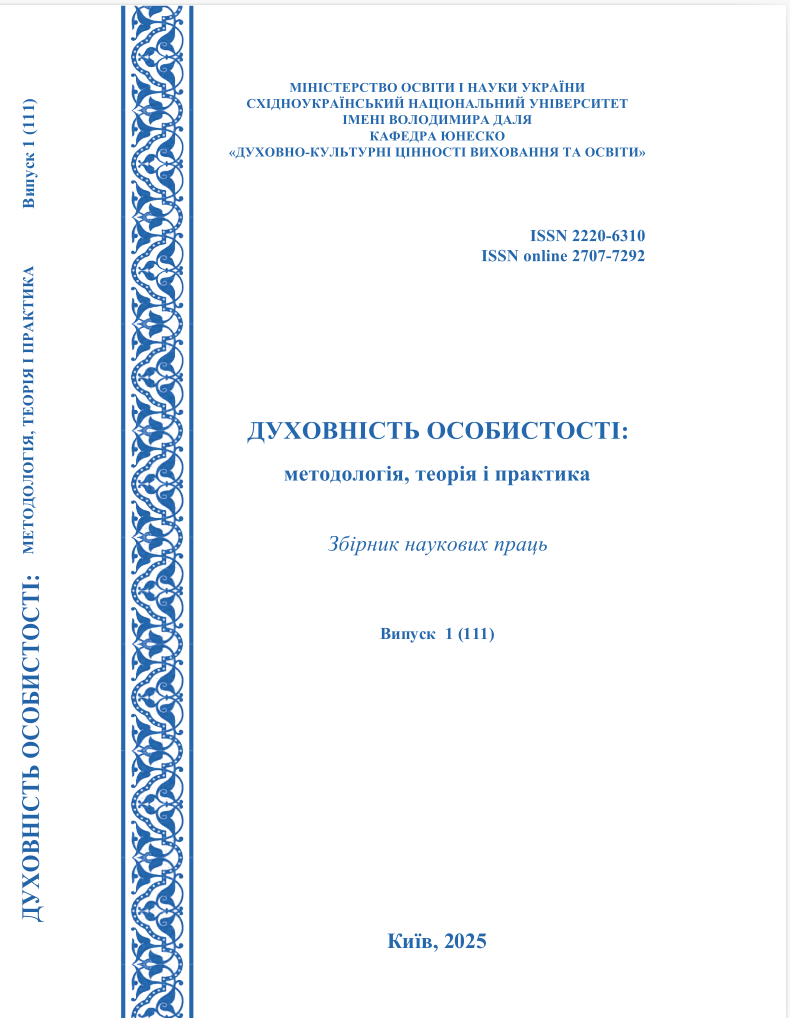The role of humanitarian knowledge in the development of a globally oriented person
DOI:
https://doi.org/10.33216/2220-6310/2025-111-1-195-203Keywords:
humanitarian education, intercultural competence, globalisation, social responsibility, sustainable development, humanitarian knowledge, worldview, higher educationAbstract
The article examines the role of humanitarian knowledge in the process of formation of a personality capable of functioning effectively in a globalised world. It is substantiated that humanitarian disciplines - history, philosophy, cultural studies, sociology, political science - form the openness of worldview, critical thinking, ethical reflection and the ability to intercultural communication in higher education students. It is determined that these qualities are fundamental for the development of global consciousness, social responsibility and readiness for active participation in public life at the international level.
Particular attention is paid to the pedagogical conditions under which humanitarian knowledge contributes to the formation of a globally oriented personality. These conditions include an interdisciplinary approach, interactive teaching methods, problem-based learning, and participation in international educational programmes and projects. It is noted that it is important not only to transfer knowledge, but also to form values, the ability to self-reflection and understanding of the interdependence of humanity in the context of global challenges of our time. It is emphasised that it is humanitarian knowledge that shapes students' ability to think in terms of global interdependence and human solidarity.
The article also emphasises the importance of updating the content of humanities education in accordance with new educational challenges and socio-cultural realities of the XXI century. The necessity of active participation of teachers in the processes of forming critical and global consciousness, creating an open educational environment that stimulates dialogue, tolerance, creative thinking and flexibility is emphasised. Prospects for further research in the direction of humanitarian transformation of higher education in the context of digital globalisation, taking into account the challenges of war, environmental crises, information security and growing intercultural tensions, are outlined.
It is concluded that humanitarian education should become a central element in the formation of competencies of the future, such as critical and systemic thinking, tolerance, respect for cultural diversity, readiness for peacekeeping, sustainable development and preservation of universal values in the global context.

